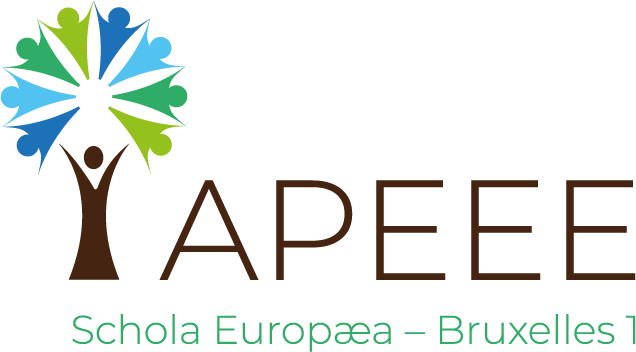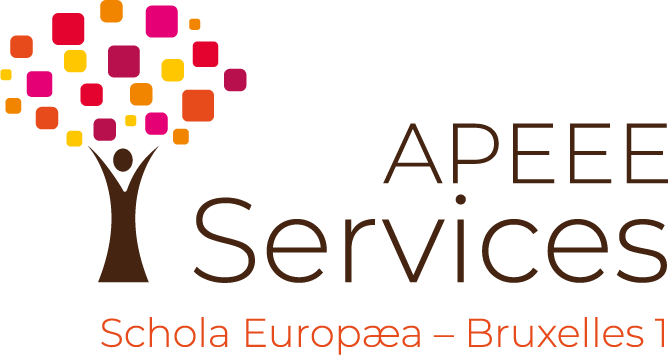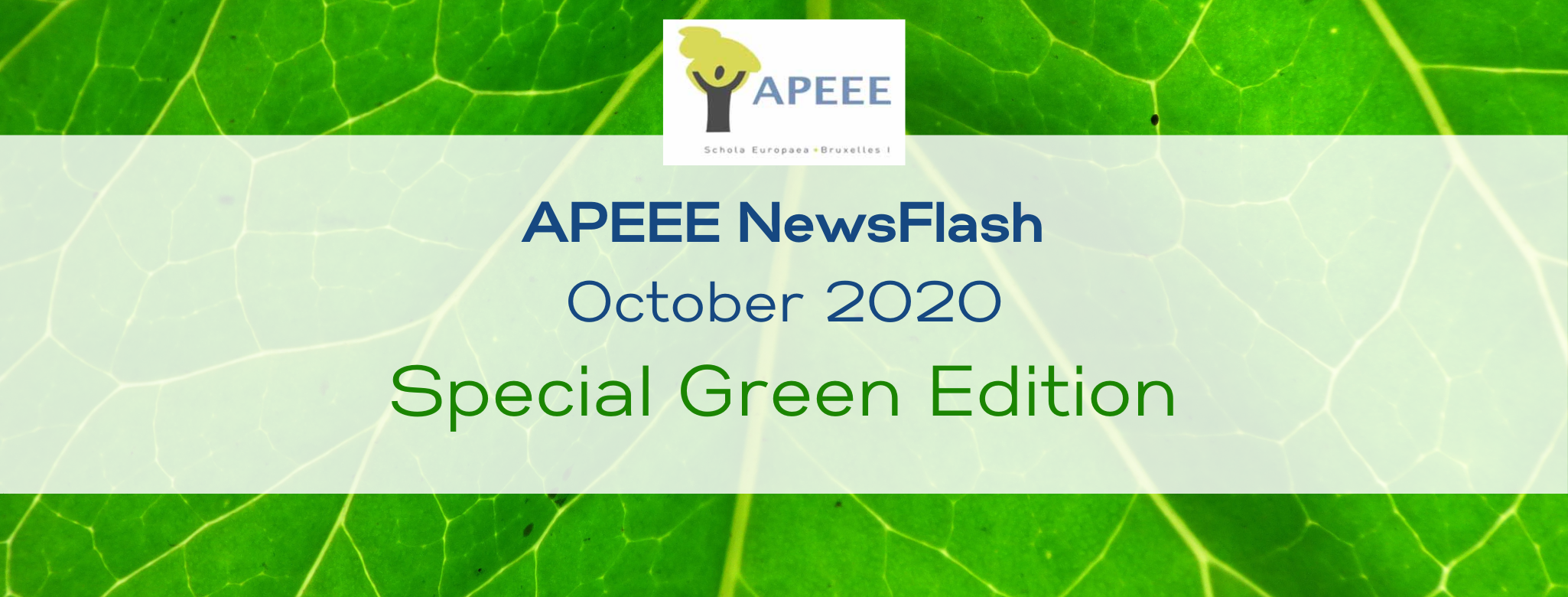Dear Parents, Teachers and Students at EEB1,
Climate change and environmental degradation are an existential threat to Europe and the world. To overcome this threat we need to move towards a modern, resource-efficient and sustainable economy and society. It is the EU’s big objective to become climate neutral in 2050.
Today we want to inform you about what’s going on in EEB1 to make our school more sustainable and to contribute to the “green transformation”. But we also want you to take action. Everybody can contribute to make our school a better place to learn and live. This concerns, in particular, air pollution: a local issue which requires local action.
Here are some concrete actions where you can play an active role.
Improved cycling infrastructure and green busses for better air quality at the European Schools in Uccle and Berkendael
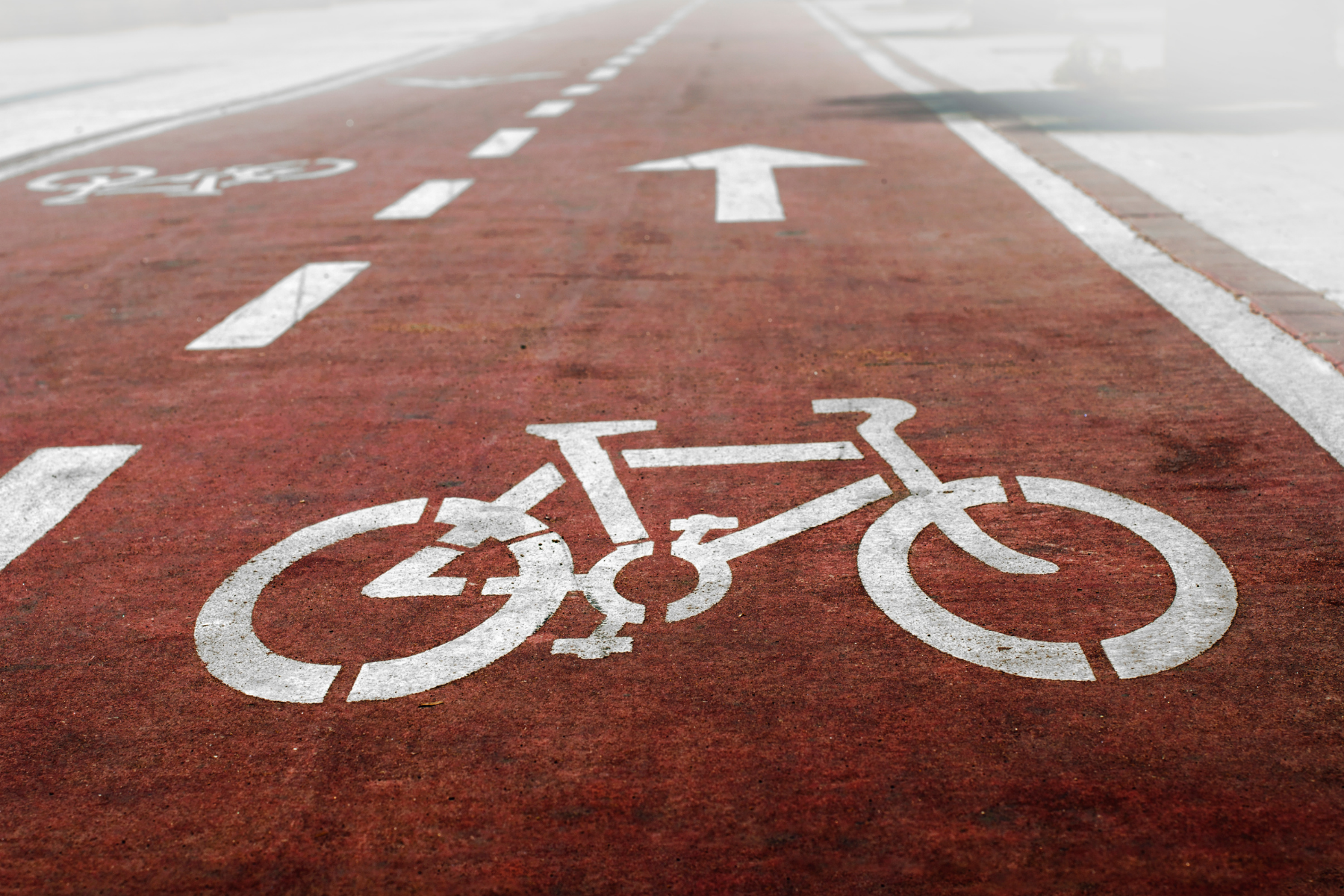 We want to improve access to the school campuses by bike and improve the cycling infrastructure in and around EEB1. We also want to contract smaller busses where possible and to progressively renew the school bus fleet to become fully electric by 2025. Good news: The Board of the APEEE Services just agreed to start with a pilot project now, meaning that both the Uccle and the Berkendael bus fleet will be testing one electric bus each this school year. But a lot remains to be done to start replacing buses on a larger scale. Please help us get the attention of everyone concerned and
We want to improve access to the school campuses by bike and improve the cycling infrastructure in and around EEB1. We also want to contract smaller busses where possible and to progressively renew the school bus fleet to become fully electric by 2025. Good news: The Board of the APEEE Services just agreed to start with a pilot project now, meaning that both the Uccle and the Berkendael bus fleet will be testing one electric bus each this school year. But a lot remains to be done to start replacing buses on a larger scale. Please help us get the attention of everyone concerned and
|
- - > SIGN THIS PETITION < - - Your action is needed to encourage active mobility and reduce air pollution levels in and around our school. |
Contact petition: Fabian Weiss, weissf13@gmail.com
Contact APEEE Services Transport: Kevin O’Connor, Kevin.OCONNOR@ec.europa.eu
Waste management, gardening, eco-citizenship, climate change, transport and other green projects at EEB1 in 2020-2021

During this school year some “green projects” have been launched by parents, teachers and students, some with financial support from APEEE. If you are interested, please join these projects and contribute to their implementation.
- Intelligent Waste Estimation System (IWES): Food waste is one of the major global concerns of modern society. Our system is designed to reduce this effect and raise awareness on the importance of the issue. IWES uses artificial intelligence to estimate the mass of wasted food from images of finished plates in the school’s canteen and monitor food consumption. This will give us a considerable database of food consumption statistics that could then be used to make accurate predictions on food waste according to the daily menu and thus, help the canteen to plan the meals for optimal waste. The ultimate goal is to bring this technology to all the European Schools and organise an annual food waste competition. This would further incentivise students to revise their food consumption habits and act more ecologically. The project is co-sponsored by Nvidia® which will be providing a part of the Hardware requirements of the project.
Contact: Alexandros Pantalos, alexandros.pantalos@student.eursc.eu
- Jardinons à l’école: The projects aims to invite nursery students to become aware of food waste and waste sorting. A reflection process will be launched on possible ways to move towards recycling, making compost and gardening together on the school campus.
Contact: Elisabeth Buée, elisabeth.buee@teacher.eursc.eu
- Citoyens du Monde: This project aims to disseminate an eco-citizen reflection to all families in nursery classes and beyond. Its purpose is to give meaning to learning by meeting an author and an oceanographer, to sensitize students to become responsible citizens of tomorrow and to give life to the school-family partnership. APEEE is helping to finance the creation of a collection of books on the environment.
Contact: Mathieu Girot, Mathieu.girot@teacher.eursc.eu
- Climate Neutral European School: The project aims to reduce the school’s energy consumption with the help of an app (For Good) that can help to achieve climate neutrality.
Contact: Philippe Tulkens, philippe.tulkens@ec.europa.eu
- Environmental friendly transportation means and habits to travel in and out of Brussels: This project aims at promoting cycling, bike sharing, car sharing, public transport for short distances and railway transportation more especially night trains for long distances among parents from Uccle and Berkendael.
Contact: Raphael Winkler-Goldstein, raphaelwinkler@hotmail.com or Belgium@back-on-track.eu
- Good Planet Initiative: A Belgian non profit organisation proposes 5 challenges to schools, such as consuming local food, reducing waste, lowering heating by wearing pullovers, reducing water consumption and rediscovering nature. The challenges will happen between October 2020 and April 2021 and are free of charge.
Contact: Patryk Malesa, patryk_malesa@yahoo.de
Vélomai 2020
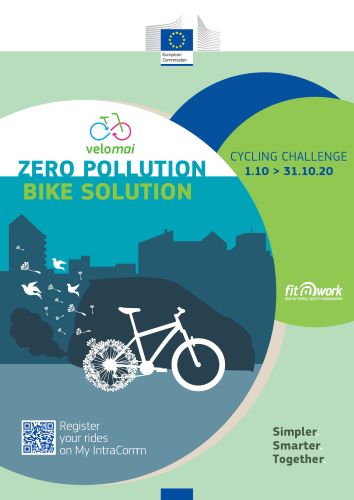
School students and parents have been invited by the school to join the Vélomai Challenge during October. All bike-loving parents and students should take part in the initiative. The more we participate, the more we promote the use of the bicycle as a healthy and sustainable mode of transport.
In order to participate in the challenge, you should access the Vélomai application (available on Google Playstore and Apple Appstore) and register your participation data (cycle rides, km) for each of the corresponding days of the challenge seven days a week. More information on the rules and how to participate can be found in the VéloMai 2020 Participation Rules.
Solar panels at EEB1 and electricity consumption
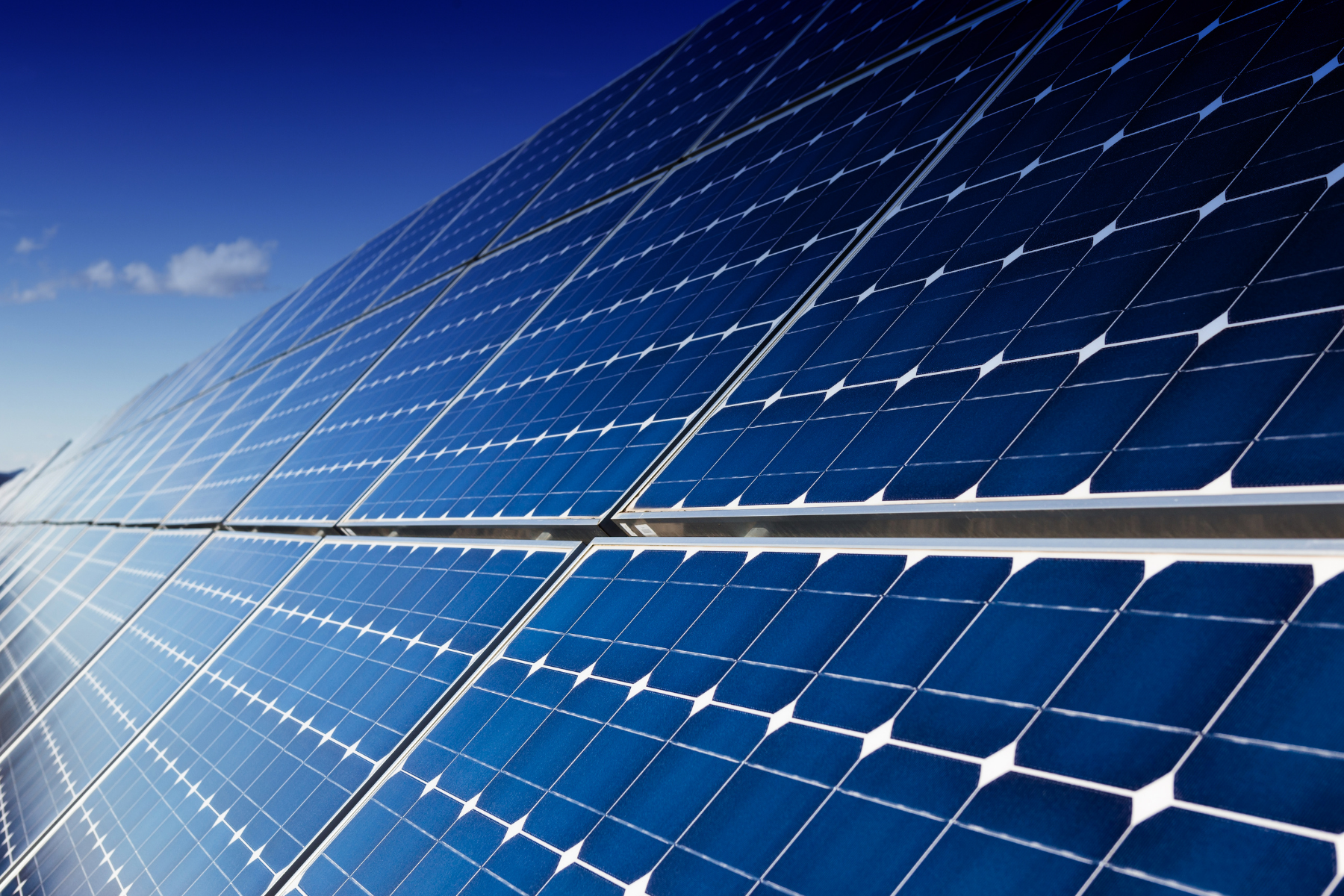 At the initiative of last year’s S7 students, a total of 274 solar panels were installed on the roofs of the Gutenberg and Michelangelo buildings in May 2020. These can cover electricity needs of 30 households / year. 22 Tons of CO2 equivalent will be avoided each year, corresponding to the carbon absorption of 2186 trees per year. School management promised to keep us updated with the savings and the reduced carbon footprint. We need volunteers among parents and teachers to follow up on the details and develop new ideas on what else can been done to reduce the school’s energy consumption.
At the initiative of last year’s S7 students, a total of 274 solar panels were installed on the roofs of the Gutenberg and Michelangelo buildings in May 2020. These can cover electricity needs of 30 households / year. 22 Tons of CO2 equivalent will be avoided each year, corresponding to the carbon absorption of 2186 trees per year. School management promised to keep us updated with the savings and the reduced carbon footprint. We need volunteers among parents and teachers to follow up on the details and develop new ideas on what else can been done to reduce the school’s energy consumption.
Contact: Dietrich Rometsch, d.rometsch@skynet.be
Second hand clothes fair amongst school community
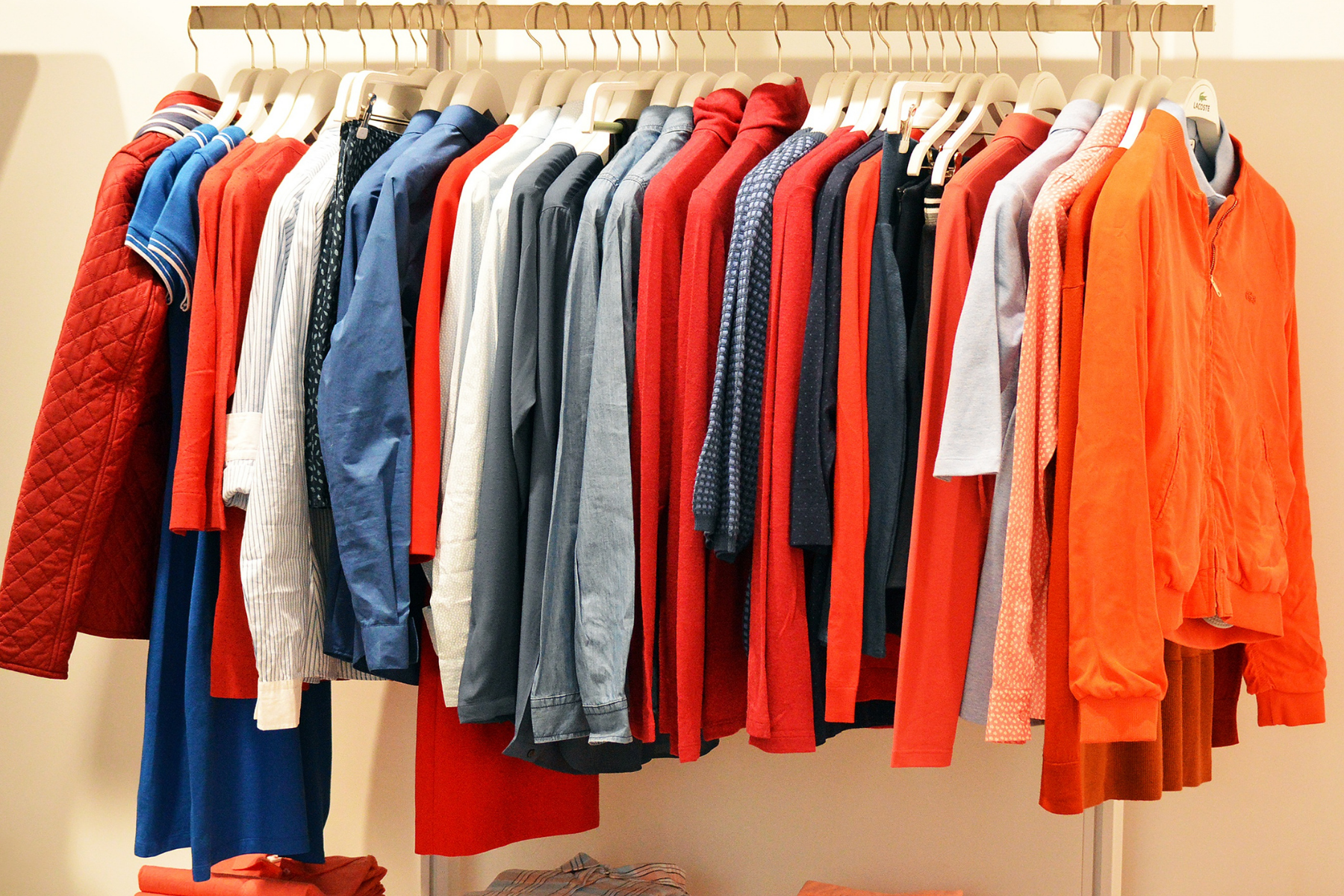 Second hand shops are becoming more and popular (again). The idea is to propose a way to recycle used and unwanted clothing amongst the school community so that all involved gain from this. This reciprocal buy/sell/trade transaction between EEB1 students would raise awareness on the consequences of “fast fashion”, would contribute to reduce an incalculable amount of unwanted clothing from dumps and landfills and have a positive impact on the environment. According to Oxfam 20,000 litres of water are required to make just one pair of jeans and one t-shirt! EEB1 Students proposed this project last year and we are looking for volunteers to continue the work.
Second hand shops are becoming more and popular (again). The idea is to propose a way to recycle used and unwanted clothing amongst the school community so that all involved gain from this. This reciprocal buy/sell/trade transaction between EEB1 students would raise awareness on the consequences of “fast fashion”, would contribute to reduce an incalculable amount of unwanted clothing from dumps and landfills and have a positive impact on the environment. According to Oxfam 20,000 litres of water are required to make just one pair of jeans and one t-shirt! EEB1 Students proposed this project last year and we are looking for volunteers to continue the work.
Contact: Morna Rometsch, ROMETSMO@student.eursc.eu
Green group at EEB1 for students, parents, and teachers
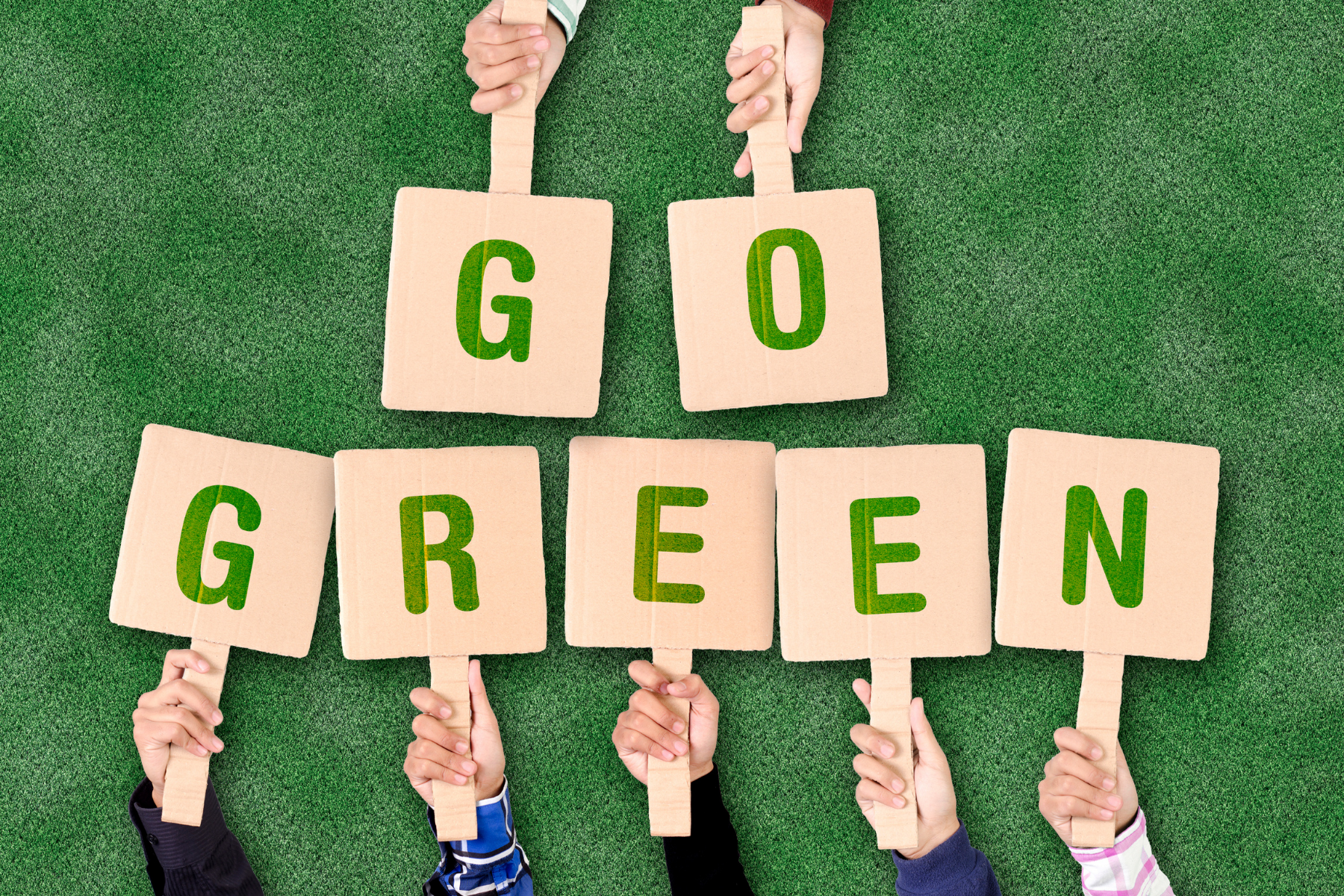 Finally, an overarching “Green Group” has been established to advance projects on the environment, waste reduction, transport, energy and other sustainable development issues. The aim is to raise awareness on these topics within the school community and to develop ideas of what can be done to change behaviour and become more environmentally friendly through concrete actions. The group organises regularly online meetings. If you are interested to be invited to meetings, please contact Christoph Klockenbring, Christoph.klockenbring@ec.europa.eu
Finally, an overarching “Green Group” has been established to advance projects on the environment, waste reduction, transport, energy and other sustainable development issues. The aim is to raise awareness on these topics within the school community and to develop ideas of what can be done to change behaviour and become more environmentally friendly through concrete actions. The group organises regularly online meetings. If you are interested to be invited to meetings, please contact Christoph Klockenbring, Christoph.klockenbring@ec.europa.eu
